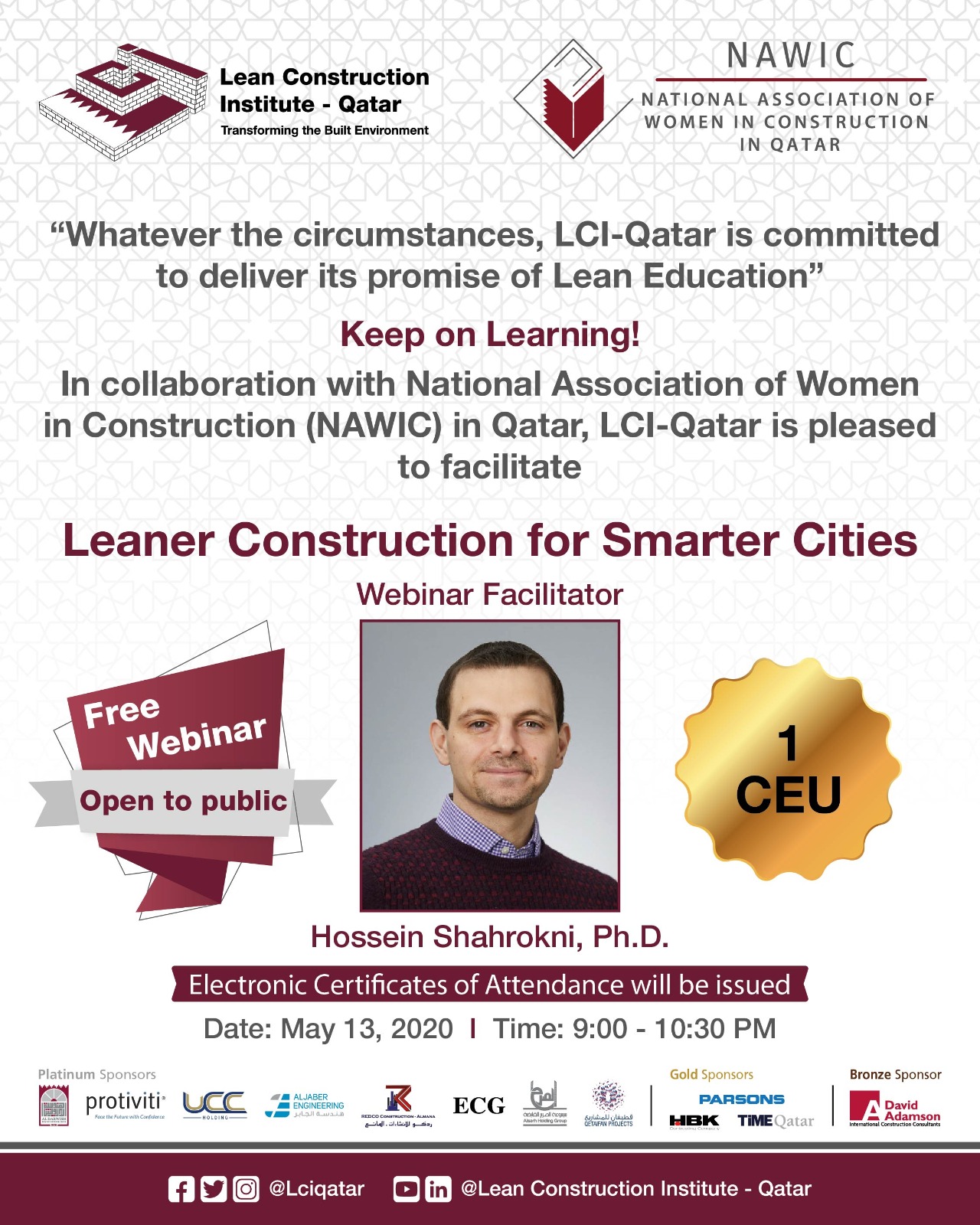
Overview
The way we have come together to mobilize for the Covid-19 crisis, represents a source of hope to our ability to meet the challenge of sustainability of our life on this planet. With the limited resources available to us, how are we going to build
enough homes, buildings, and cities, to meet the demands of our growing and increasingly urbanized population – while maintaining within our planetary boundaries?
At the heart of this question we find the challenge in how we build and operate our cities. The amount of wasted resources in our cities is immense. How can we construct and operate our cities to meet the needs of our growing population, without wasting our limited resources in the process?
The principles of lean construction and the concepts of smart cities provide a foundation to address this challenge. In practice, they provide municipalities, construction developers, utilities, and citizens actionable frameworks, tools and decision-support to help to reduce waste and inefficiencies, while increasing value to the citizens and the global sustainability goals. This presentation will provide an overview of the concept of smart cities and its relation to lean construction. It will highlight the value of data to create leaner and smarter cities.
Topics:
• The Necessity of Leaner and Smarter Construction and Operation of our Cities
• The Relationship Between Lean Construction and Smart Cities
• Next Generation of Green Building Rating Systems
• Smart Urban Metabolism and the Value of Data
• Case Studies from Sweden
• Engaging the Citizens as a Stakeholder
• Practical Recommendations for a Leaner Outcome in Smart City Projects
Hossein Shahrokni, Ph.D.
is a researcher at the Royal Institute of Technology (KTH), Stockholm. There he explores the role of ICT in the sustainable development process from two complementary angles. First on how ICT can help bridge the citizen engagement barrier as it relates to a buildings’ energy and material flows as informed by urban metabolism, human computer interaction, and social psychology. Second on how analytics and existing big urban data can aid our understanding in how our cities work, and to inform city interventions such as smarter waste collection plans
and large scale building retrofitting plans. He has developed a framework for Smart Urban Metabolism based on which he built a research portfolio in close collaboration with the City of Stockholm and urban stakeholders. Based on this framework he directs research on big data, smart cities, and citizen empowerment.
He holds a Ph.D. from the Royal Institute of Technology, Stockholm, and a M.Sc. in Energy Systems Engineering from Uppsala University.
